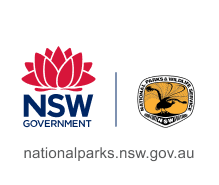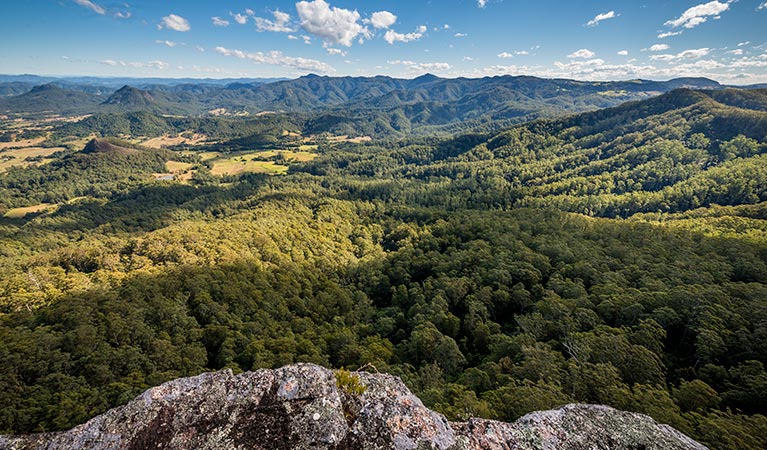Flat Rock lookout
Coorabakh National Park
Overview
Flat Rock lookout offers scenic views over the Coxcomb, Goonook and Killabakh nature reserves, as well as great picnicking and birdwatching opportunities.
- Type
- Lookouts
- Where
- Coorabakh National Park in North Coast
- Opening times
Flat Rock lookout is always open but may have to close at times due to flood events, poor weather or fire danger.
- What to
bring - Hat, sunscreen, drinking water
Flat Rock lookout has a tricky name. There’s nothing flat about the 500m drop, though the sheer sides of the escarpment offer some of the most scenic views in the region. This beautiful rock formation is the remnant of a vast volcano that once dominated Comboyne Plateau to the west.
A small fenced viewing platform opens out over sweeping plains. On clear days, the Coxcomb, Goonook and Killabakh nature reserves are visible far into the distance, laid out like a green and yellow patchwork of dense blackbutt forests and grassy fields. Be sure to bring binoculars and a camera too – birds of prey are known to nest in the cliffs, with peregrine falcons and wedge-tailed eagles sometimes circling overhead, making this a great spot for birdwatching.
To extend a visit, take advantage of the nearby tables and turn Flat Rock lookout into a dramatic place to picnic, perhaps using the view to mull the rest of your day and the natural bounty of Coorabakh National Park.
Map
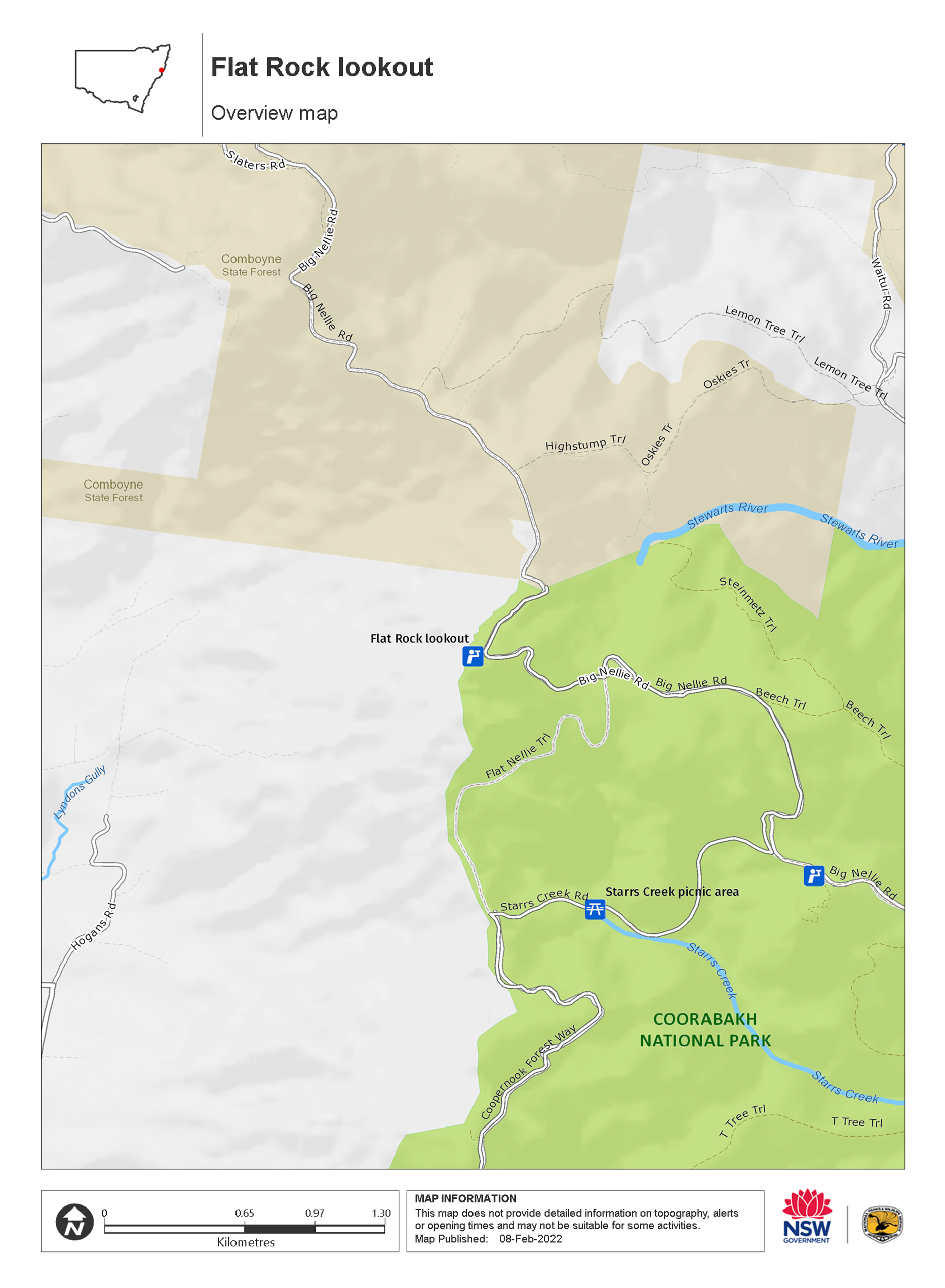
Map legend
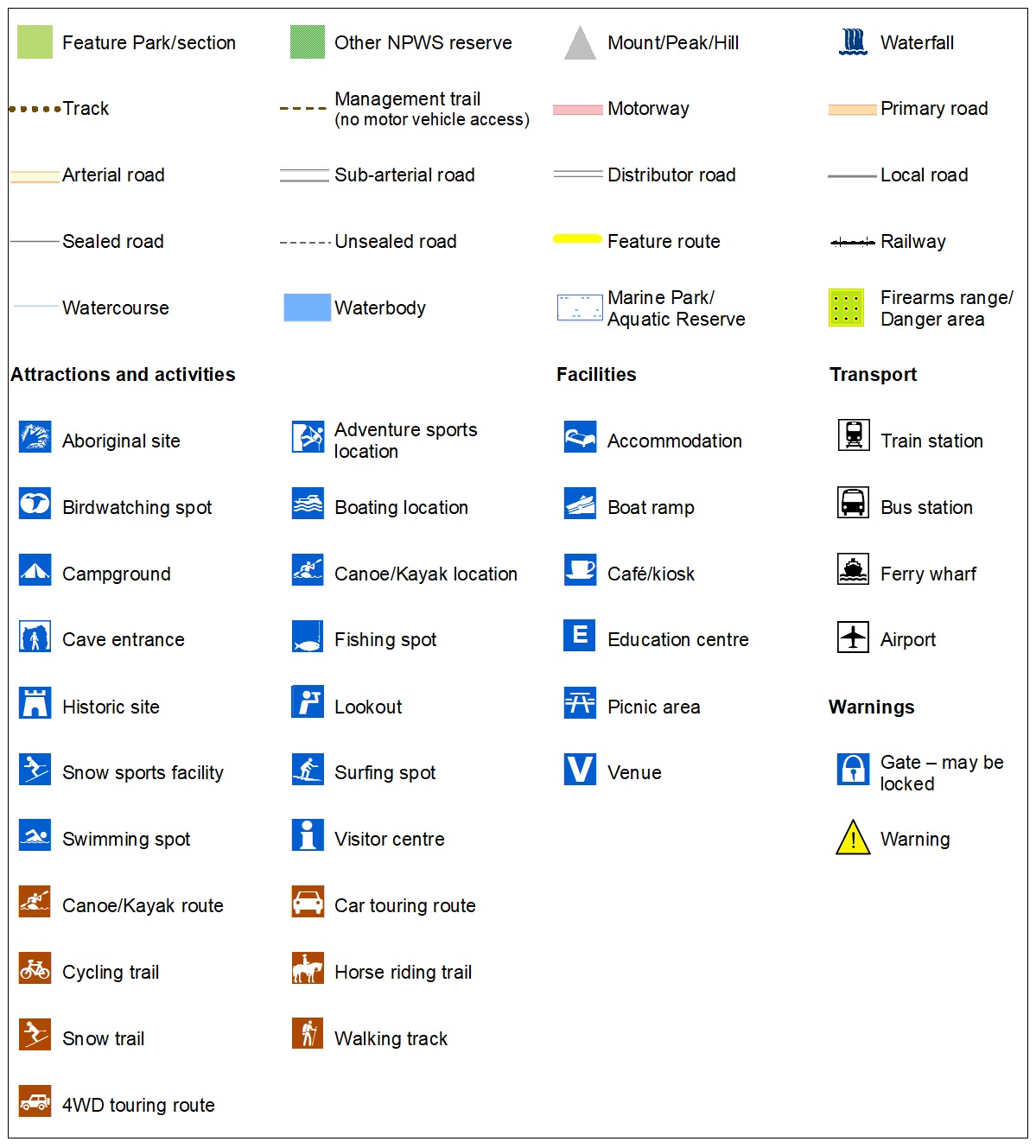
Local alerts
For the latest updates on fires, closures and other alerts in this area, see https://uat.nswparks.cloud/things-to-do/lookouts/flat-rock-lookout/local-alerts
General enquiries
- National Parks Contact Centre
- 7am to 7pm daily
- 1300 072 757 (13000 PARKS) for the cost of a local call within Australia excluding mobiles
- parks.info@environment.nsw.gov.au
Park info
- in Coorabakh National Park in the North Coast region
Coorabakh National Park is always open but may have to close at times due to poor weather or fire danger.
Visitor info
All the practical information you need to know about Flat Rock lookout.
Maps and downloads
Learn more
Flat Rock lookout is in Coorabakh National Park. Here are just some of the reasons why this park is special:
A legacy of timber harvesting

Before it was a national park, Coorabakh had a long history of forestry operations. This was once a centre of intensive logging - particularly during the World Wars - and visitors can still find physical remnants of the industry. One evocative site is the Langley Vale tramway, which was originally used to transport timber 21km from Old North Camp to Langley Vale, first by horse and later by steam engine. The line was abandoned in the 1940s, but relics still remain: timber bridges, elevated platforms, offcuts left to moulder in the forest, reclaimed by nature.
Eighteen forest ecosystems

The astonishing variety of forest ecosystems in Coorabakh vary from wet foothills covered in blackbutts to subtropical rainforest. This makes a visit a fascinating experience as you range from high lookouts over eucalyptus canopies to cool mossy creekbeds.
- Big Nellie lookout and picnic area Big Nellie, in Coorabakh National Park, and the scenic lookout at its base offers a vantage point for photography and birdwatching, as well as a great place to picnic.
- Flat Rock lookout Flat Rock lookout offers scenic views over the Coxcomb, Goonook and Killabakh nature reserves, as well as great picnicking and birdwatching opportunities.
- Newbys lookout Newbys lookout, on the edge of the Landsdowne escarpment, offers scenic views over Manning Valley as well as opportunities for birdwatching and picnicking.
Home to rare native species
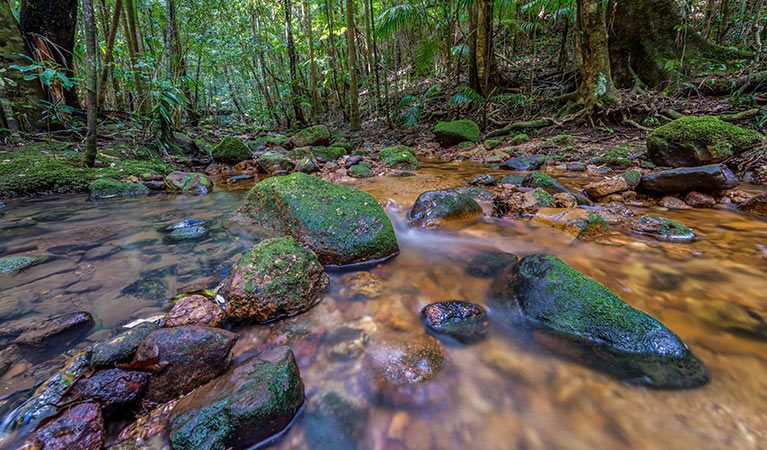
The park is important at a regional level for a number of rare and significant plant species. There are also several species of threatened animal, including the spotted-tailed quoll, yellow-bellied glider, powerful owl and stuttering frog. Don’t forget your camera.
- Newbys Creek walk and caves A short walk along Newbys Creek in Coorabakh National Park takes visitors to a scenic cave, where a large overhanging rock creates a natural shelter above the stream.
- Starrs Creek picnic area Great for picnicking and birdwatching, Starrs Creek picnic area in Coorabakh National Park also offers an elevated boardwalk that opens up the rainforest on an easy walk.
The Aboriginal connection
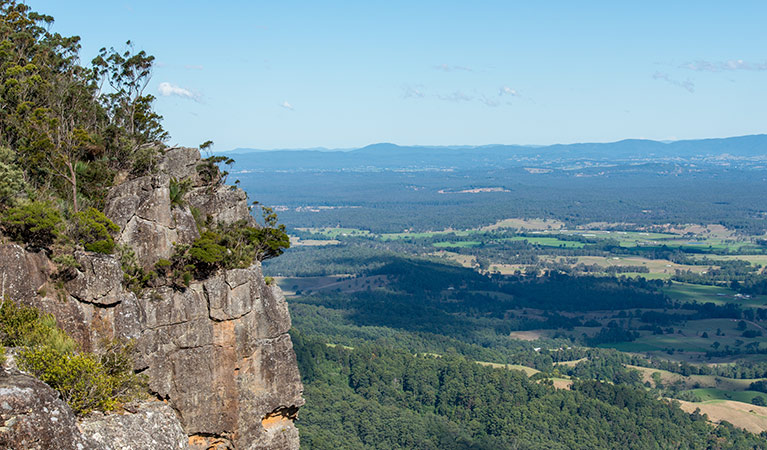
Before Europeans arrived, the area was the traditional domain of the Ngaamba People. Research suggests that they once used the dramatic cliff lines and distinctive volcanic formations to navigate the region. They may also have been important for cultural practices, sites of sacred ceremonies and other social gatherings.
